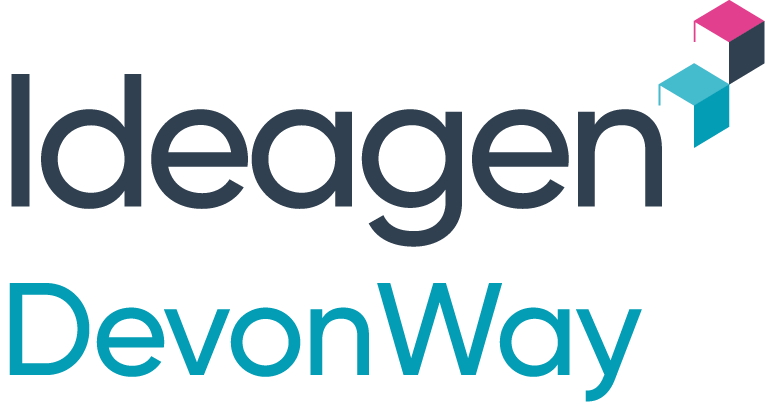4 min read
What NTSB/API RP 1173 Means For The Pipeline Industry
By: Matt Sacks on February 22, 2023

Achieve compliance with RP 1173 to improve safety performance
Following a devastating environmental disaster in 2010, the American Petroleum Institute (API) developed American National Standards Institute/API Recommended Practice 1173 — which is still recommended for pipeline operators today. RP 1173, which is backed by the National Transportation Safety Board, details safety management system (SMS) requirements that are designed to reveal and manage risk, promote a learning environment, and constantly strive to improve pipeline safety.
Although it's not an official regulation that carries fines, RP 1173 is a guidance that pipeline industry enterprises are strongly urged to implement, as it can help avoid accidents and injuries to people and the environment.
What led to the creation of RP 1173?
In July 2010, a 30-inch diameter pipeline ruptured near Marshall, MI. More than 840,000 gallons of crude oil poured into nearby wetlands and a creek that flowed into the Kalamazoo River. The rupture wasn’t discovered for 17 hours, exacerbating the calamity.
The subsequent investigation revealed the following contributors:
- Weak regulations for assessing and repairing crack indications
- Ineffective oversight of pipeline integrity management programs
- Weak pipeline control center procedures
- A low level of public awareness
In response, RP 1173 was created to avoid disasters like this one from occurring again.
Mitigate risk, legal repercussions, and reputation damage
As noted by the U.S. Pipeline and Hazardous Materials Safety Administration (PHMSA) — one of the many collaborators involved in the adoption of this national standard — the industry is “one bad accident away” from Congress making RP 1173 an industry regulation.
The obvious implication is that, in the event of an accident, investigators, insurers, and attorneys will immediately want to know if a pipeline operator had implemented an SMS consistent with RP 1173. Those who haven’t could very likely be found liable and face extensive fines, loss of reputation, and other damaging repercussions. The pipeline company found responsible for the Marshall oil spill — which caused nearly $1.5 billion in damage and cleanup costs — was fined $61 million as part of an overall $177 million settlement.
Bottom line: Pipeline operators are wise to implement an SMS that adheres to RP 1173 standards. This type of SMS:
- Enhances risk management
- Enables continuous improvement in pipeline safety performance
- Provides operators with the tools they need to continuously and comprehensively track and improve their safety performance
- Maintains and executes risk management processes
- Identifies and assesses pipeline safety threats
Deploying the right SMS helps achieve RP 1173 goals
Pursuing the industry-wide goal of zero incidents requires a comprehensive, strategic, and systematic effort. That’s what an RP 1173-compliant SMS is designed to do. It will manage the safety of all the complex processes involved in the design, installation, operation, maintenance, and integrity of a pipeline. And it delivers coordinated actions to address multiple dynamic activities and circumstances.
For pipeline operators with an existing SMS, integrating an RP 1173-compliant SMS also requires a systematic, measured gap analysis approach in which operators are able to fully:
- Understand the current state
- Understand the maturity of the existing SMS
- Understand what the new SMS does
- Translate RP 1173 to the existing SMS
- Determine overlaps and misalignments
- Assess both coverage and quality
- Identify API RP 1173 aspects not in the SMS
- Confirm and document each gap
An endeavor of this magnitude also requires ongoing oversight, including:
Review risk assessments annually: Review your risk assessments at least once a year and update them as warranted, using data and information gained from operations and maintenance, inspection and testing, integrity-related work, and incident investigations. Other risk management information includes data on the pipeline, its materials, construction, operation history, safety record, and the environment in which it operates.
Audit regularly: Identify the audit scope, frequency, and methods, with each of the elements of the Pipeline SMS audited at least once every three years.
Identify KPIs: Establish and maintain a procedure to identify key performance indicators (KPIs) to measure the effectiveness of risk management, and the effectiveness and adequacy of the PSMS.
Ensure personnel professionalism and expertise: Make sure your personnel have an appropriate level of competence in terms of education, training, knowledge, and experience. You should also expect the same from your contractors.
Provide ongoing training: Provide personnel and contractors with training and updates to ensure they remain current on:
- Applicable elements of the pipeline SMS that affect their job requirements
- Newly emerging or changing risks, problems in execution of the pipeline SMS, and opportunities to improve processes and procedures
- Potential consequences of a failure to follow processes or procedures
Maintain efficient SMS record-keeping: It’s the pipeline operators responsibility to identify, distribute and control documents and records required to fulfill the elements of the pipeline SMS.
Be proactive in your RP 1173 adoption. DevonWay can help.
Adopting RP 1173 is a good idea for all pipeline operators because it fosters safer operations, enhances the industry’s reputation, promotes public confidence, satisfies the concerns of regulatory agencies, and mitigates the risk of an accident. Successful adoption requires an agile SMS platform to support the ongoing safety improvements you need to make.
Consolidating your processes into a single platform that streamlines your operations, while achieving compliance with rapidly changing market pressures and regulations, provides a transformative effect on your bottom line — all while improving safety, reliability, and cost efficiency. The best part? It often has an ROI of less than a year.
With its roots in continuous improvement principles, DevonWay quality, safety, asset, and work management software delivers process automation that anticipates ongoing change, incorporates evolving knowledge, and is tailored to your unique requirements. DevonWay Pipeline Safety Management Software helps manage audits and assessments, corrective and preventive actions, documents, equipment calibrations, inspections, and risk — everything you need to proactively and successfully adopt RP 1173.
If you’d like to learn more, we invite you to request a free demo.
Related Posts
Streamlining Systems to Meet Demands: A Quaker Houghton Success Story
When a global industrial process fluids manufacturer sought to streamline systems and information...
New OSHA Ruling Expands EHS Data Reporting Requirements
A new OSHA ruling will take effect Jan. 1, 2024, that expands submission requirements for injury...
DevonWay & Rombit: A Powerful Partnership For More EHS Data
Every organization strives for environmental, health and safety (EHS) excellence – and achieving...





